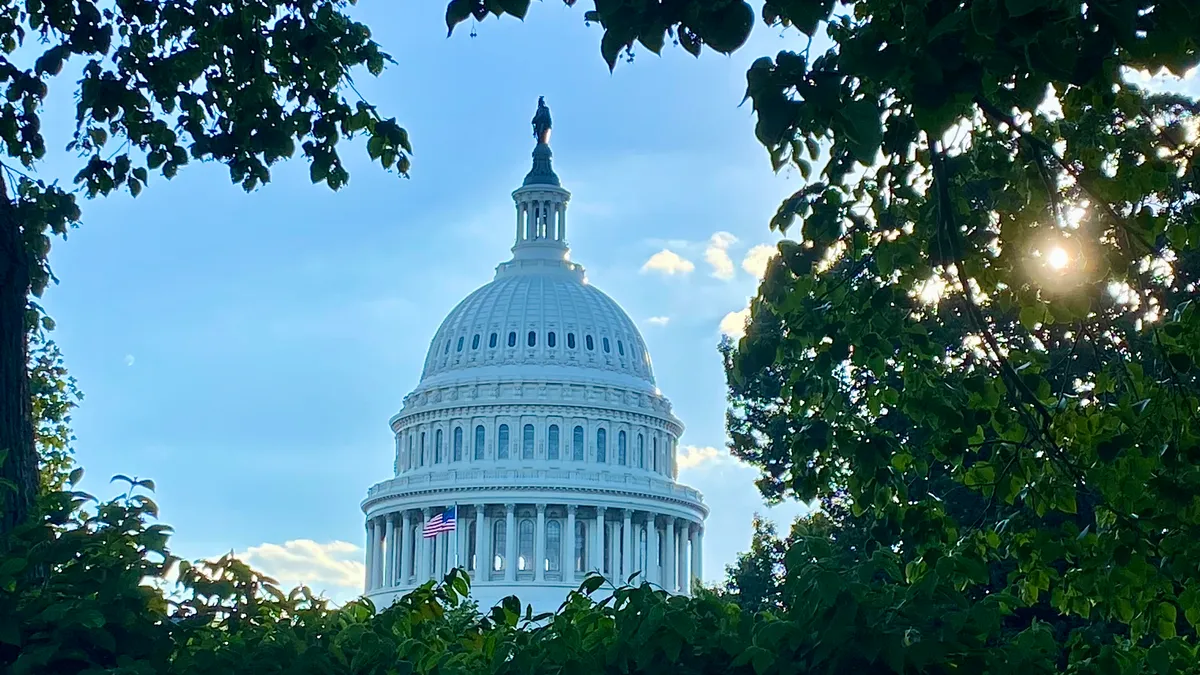Three regulators’ appearance Tuesday before the Senate Banking Committee may have been scheduled before the collapse last week of crypto exchange FTX, but digital-asset risk was the hearing’s undisputed hot topic.
Lawmakers’ comments highlighted viewpoints from across the political spectrum. Sen. Sherrod Brown, D-OH, the panel’s chairman, thanked the officials — Michael Barr, Michael Hsu and Martin Gruenberg — “for your skepticism about cryptocurrencies.”
If regulators had given the crypto space more credibility, “we’d be cutting another check,” another Democrat, Sen. Jon Tester of Montana, asserted, according to CoinDesk, in a reference to government bailouts of finance firms in the wake of the 2007-08 recession.
Sen. Pat Toomey, R-PA, the panel’s retiring ranking member, argued that regulators hold “some of the obligation” to provide clear guidance for how banks should handle digital assets — and that their reluctance to do so “has helped to push crypto activities into foreign jurisdictions with weaker or no regulatory regimes.”
The Office of the Comptroller of the Currency (OCC), roughly a year ago, confirmed that national banks and federal savings associations can engage in certain crypto and stablecoin activities, so long as they demonstrate they have adequate controls in place.
Hsu, the OCC’s acting chief, reiterated that Tuesday. "If banks can demonstrate that they can do that activity in a safe, sound and fair manner, we're all ears," he told lawmakers, according to American Banker.
Hsu said last month his agency needs more information regarding banks’ crypto-related activities to understand the scope of crypto-asset exposure.
Barr, the Federal Reserve’s vice chair for supervision, asserted that few banking institutions are seeking to engage in crypto custody activity.
"We've seen banks operate in a pretty cautious way to date," he said, according to Reuters.
Toomey, however, argued crypto customers might be better protected if regulators allowed commercial banks to engage in more crypto activities, such as safeguarding digital assets alongside traditional investments. He chastised regulators for not giving more guidance on that front — as the OCC, Fed and Federal Deposit Insurance Corp. (FDIC) pledged a year ago to do throughout 2022.
Toomey also cited a potential financial barrier to crypto custody for banks: namely, that the Securities and Exchange Commission (SEC) requires crypto-holding companies that it oversees to label those holdings as liabilities on their balance sheets and to hold assets to offset that risk.
"Wouldn't this impose a significant cost on banks?” Toomey asked Barr.
Regulators “do not want to stifle innovation,” Barr asserted. “But when regulation is lax or behind the curve, it can facilitate risk-taking and a race to the bottom that puts consumers, businesses and the economy in danger and discredits new products and services with consumers and investors.”
Barr said the Fed, FDIC and OCC are working together “to assess the risks and opportunities posed by a range of crypto-asset-related activities,” according to The Wall Street Journal.
"We're concerned about the risks that we don't know about in the nonbank sector," Barr said, according to American Banker. "That includes obviously crypto activity, but more broadly risks in parts of the financial system where we don't have good visibility, we don't have good transparency, we don't have good data. That can create risks that blow back to the financial system that we do regulate.”
Citing a bill she introduced in June that would divide crypto oversight between the SEC and Commodity Futures Trading Commission (CFTC), Sen. Cynthia Lummis, R-WY, said “it is obvious that Congress needs to regulate digital assets.”
Sen. Bill Hagerty, R-TN, faulted Congress, in part, for failing to pass legislation that would establish crypto guidelines.
However, he added, according to CoinDesk, that “no amount of poorly considered, knee-jerk overregulation here in the U.S. would have prevented a foreign-domiciled company like FTX from doing what it did."
Barr, though, defended regulators’ role, saying they are “the first place to start in this space.”
"They have existing authorities. We want to make sure those are fully utilized,” he said, according to Reuters. “Some of the activity that was going on in this space was purporting to go on in a way that was designed to evade supervision and regulation. I think we've seen the enormous human costs of that kind of activity.”
The ongoing crypto meltdown wasn’t the only topic discussed at Tuesday’s hearing.
Barr, in written remarks, said the Fed would heighten its focus on liquidity, credit and interest-rate risks at the companies it oversees.
“Uncertainty has led to increased financial market volatility and may also reveal pockets of excess leverage and liquidity risk in the nonbank financial sector, which risks spillovers to the banking system and the real economy,” he said.
He also predicted a “significant softening in the economy,” according to Reuters.
“There is not a recession right now,” Barr said. “We're in a period of slower economic growth.”
Continuing on crypto, Sen. John Kennedy, R-LA, — known to throw zingers such as “I don’t know whether to call you ‘professor’ or ‘comrade,’” aimed at a Soviet-born former candidate to lead the OCC last year — asked the regulators Tuesday whether any of them would hire former FTX CEO Sam Bankman-Fried “to manage a food truck.”
“Do you know who was watching these chuckleheads?” he asked, according to CoinDesk.
“That's under investigation now, Senator," said Gruenberg, the FDIC’s acting chief.
Barr, Hsu and Gruenberg are set to testify Wednesday in front of the House Financial Services Committee.






















